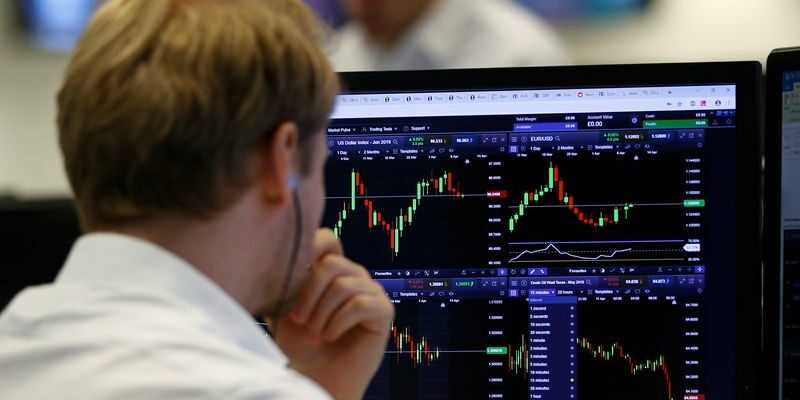by Marc Angrand
(Reuters) – European stock markets, except for London, ended higher on Monday, benefiting among other things from the relapse in oil prices, one of the highlights of the day, while the rise in bond yields, which is pushing the dollar higher and lower the yen, eased a bit.
In Paris, the CAC 40 gained 0.54% (35.43 points) to 6,589.11 and in Frankfurt, the Dax gained 0.78% while in London, the FTSE 100 ended in equilibrium, penalized by oil stocks.
The EuroStoxx 50 index ended up 0.5%, the FTSEurofirst 300 0.32% and the Stoxx 600 0.14%.
At the time of the closing in Europe, Wall Street evolved in dispersed order: the Dow Jones yielded 0.56% and the Standard & Poor’s 500 0.28% while the Nasdaq Composite was practically unchanged; the rise of Tesla (+7.13%) supported the latter after the announcement of a plan to split the nominal of its share while banking and oil stocks gave ground.
General market sentiment also continues to benefit from hopes for progress in the talks between Russia and Ukraine this week in Turkey, after statements by the Ukrainian president on the possibility of a neutral status for his country.
Investors also seem to put into perspective the impact on equities of the yet spectacular rise in government bond yields, linked to expectations of a rapid rise in key rates from the major central banks.
“At the moment, the losses suffered by bonds only reinforce the feeling that there is no real alternative to equities, and these are benefiting,” says Rupert Thompson, Kingswood’s chief investment officer. . “Longer term, however, rising yields should weigh on valuations and limit equity gains.”
RATE
In the bond markets, the rise in yields slowed a bit at the close in Europe: in the United States, the yield on two-year Treasury bills reduced its gains to 2.3403% and the ten-year fell to 2.453%. while they had registered at the beginning of the day the highest of almost three years, at 2.414% and 2.557% respectively.
The five- and 30-year yield curve also inverted for the first time since 2006.
In Europe, the German ten-year ended up slightly at 0.576% after climbing to 0.631%, the highest since May 2018. The session was also marked by the return of the Belgian and Dutch two-year yields above zero for the first time since 2014.
OIL
The announcement of a two-phase lockdown in Shanghai in response to the resurgence of the COVID-19 outbreak sparked a sharp profit-taking move on oil after last week’s rebound.
Brent fell 5.98% to 113.43 dollars a barrel and US light crude (West Texas Intermediate, WTI) fell 6.4% to 106.61 dollars.
They had gained 11.8% and 8.8% respectively over the past week.
VALUES
In Europe, this relapse in the price of a barrel caused oil and oil services stocks to decline, the Stoxx index of which fell 2.06% over the day. Eni lost 1.28%, TotalEnergies 1.5%, BP 2.76% and Vallourec 2.89%.
The insurance and banking sectors, which both gained nearly 2% at midday, then reduced their gains with the return to calm on the bond markets: they only posted increases of 0.43% and 0.01% respectively.
Note also the increase of 4.54% of the operator of Ehpad Orpea, analysts deeming limited the financial risk linked to the complaint announced by the French State to obtain the restitution of public aid.
CHANGES
The euro ended the day slightly down against the dollar at 1.0966 (-0.14%) but gained 0.95% against the yen at 135.33, the Japanese currency suffering from the announcement by the Bank of Japan (BoJ) to uncap its bond purchases for four days in an attempt to curb rising yields.
Against the dollar, the yen lost 1.09% and fell to its lowest level in six years at 125.10.
The greenback thus posted a gain of 0.46% against a benchmark basket.
(Written by Marc Angrand)
Copyright © 2022 Thomson Reuters
